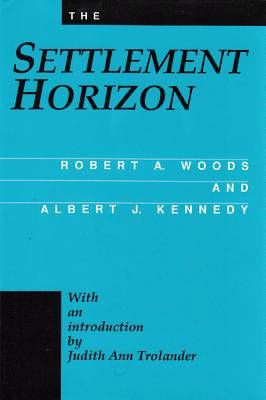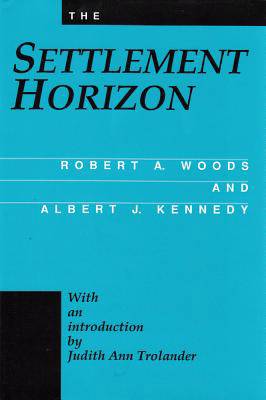
- Retrait gratuit dans votre magasin Club
- 7.000.000 titres dans notre catalogue
- Payer en toute sécurité
- Toujours un magasin près de chez vous
- Retrait gratuit dans votre magasin Club
- 7.000.0000 titres dans notre catalogue
- Payer en toute sécurité
- Toujours un magasin près de chez vous
195,45 €
+ 390 points
Description
First published in 1922, The Settlement Horizon remains the standard philosophical articulation of the settlement house movement. Written by two prominent settlement house workers, the book traces the historical roots of the movement and describes from firsthand knowledge and experience settlements at the height of their influence.Settlement houses were established to meet the needs of their neighborhoods on two levels. The first was to provide immediate services, largely educational and recreational, but also personal, to the surrounding community. The goal was neighborliness, rather than the air of social superiority that had characterized charity workers of the late nineteenth century. The second level of service was to bring about basic social reform. By living with those they sought to help, they hoped to gain insight into poverty, and acquire an added right to campaign for neighborhood improvements.Approximately 70 percent of the settlement house heads and residents were women, most of them unmarried and college educated. These were the most dynamic practitioners of the social reform side of the newly emerging profession of social work. Interestingly, as social work schools evolved and the casework or "help the individual" rather than social reform approach became dominant, the influence of the settlement house waned. Residence in settlement houses rapidly disappeared after World War II, and by the 1950s, male social workers replaced women as heads of most of the settlements. After 1970, minorities (who had become the majority in the neighborhoods served by settlement houses) replaced whites as settlement heads. In 1979 the National Federation of Settlements changed its name to United Neighborhood Centers of America.Judith Ann Trolander's introduction places the settlement house in historical context, and provides valuable information about the book's authors and their contributions. The Settlement Horizon is still the most comprehensive account by settlement workers of the settlement movement, and provides a valuable portrait of the evolution of social reform movements in the United States. It will be of interest to social workers, historians interested in the Progressive movement, and professionals in the areas of women's studies, the poor, and voluntary associations.
Spécifications
Parties prenantes
- Auteur(s) :
- Editeur:
Contenu
- Nombre de pages :
- 525
- Langue:
- Anglais
- Collection :
Caractéristiques
- EAN:
- 9780887383236
- Date de parution :
- 30-01-90
- Format:
- Livre relié
- Format numérique:
- Genaaid
- Dimensions :
- 165 mm x 241 mm
- Poids :
- 907 g

Les avis
Nous publions uniquement les avis qui respectent les conditions requises. Consultez nos conditions pour les avis.






